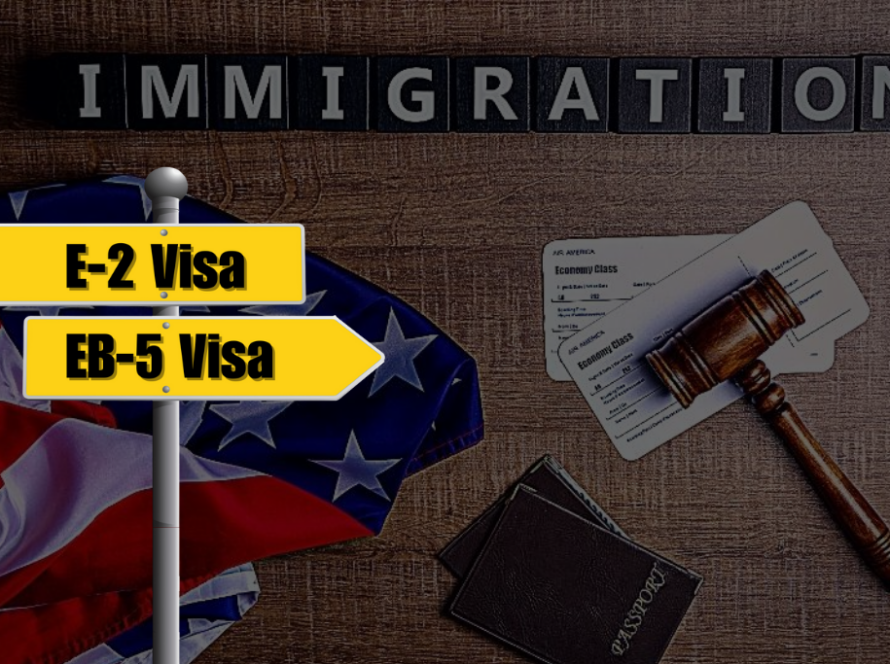Introduction:
The EB2 NIW (National Interest Waiver) is one of the most sought-after immigration pathways for skilled professionals, researchers, and exceptional individuals who want to live and work permanently in the United States. Unlike many other green card categories, the EB2 NIW allows foreign nationals to bypass the job offer and labor certification process, granting them an opportunity to secure permanent residency based on their contributions to the national interest of the U.S.
This waiver is available to those who can demonstrate that their work is of substantial merit and importance to the United States. While the EB2 category typically requires employer sponsorship, the National Interest Waiver allows applicants to self-petition, meaning they don’t need an employer to sponsor their green card application. This flexibility makes the EB2 NIW one of the most attractive options for professionals and entrepreneurs in high-demand fields.
In this guide, we will explore the eligibility criteria, application process, benefits, and challenges associated with the EB2 NIW, helping you navigate this complex but rewarding visa option.
What is the EB2 NIW (National Interest Waiver)?
The EB2 NIW is a green card category that falls under the second preference of employment-based immigration. While the EB2 visa is typically reserved for individuals with advanced degrees or exceptional abilities in their fields, the National Interest Waiver waives the usual requirement for a job offer and labor certification if the applicant can prove that their work benefits the U.S. on a national level.
The National Interest Waiver allows eligible applicants to petition for themselves, without requiring a specific employer’s support. Instead, applicants must demonstrate that their contributions have a significant impact on U.S. national interests, such as advancing economic, scientific, technological, or cultural goals.
EB2 NIW Eligibility Requirements
To qualify for the EB2 NIW, applicants must meet specific criteria related to their education, work experience, and the national interest of their proposed work. Here’s a breakdown of the key requirements:
1. Advanced Degree or Exceptional Ability:
- Advanced Degree: Applicants must hold an advanced degree (master’s, doctoral, or its foreign equivalent) in a relevant field. Alternatively, individuals with a bachelor’s degree plus at least five years of progressive experience in their field may also qualify.
- Exceptional Ability: Alternatively, applicants can qualify by demonstrating exceptional ability in their field, which typically involves showing evidence of at least three of the following:
- Official academic records showing the degree or qualifications.
- At least 10 years of full-time experience in the field.
- A professional license or certification.
- Evidence of a high salary compared to others in the field.
- Membership in professional organizations.
- Recognition by peers, government entities, or professional organizations.
2. National Interest Requirement:
To be eligible for a National Interest Waiver, applicants must demonstrate that their work is in the national interest of the United States. This is often the most challenging part of the application process. To do so, applicants must show that their work:
- Substantially benefits the U.S. in a way that outweighs the need for a labor certification and job offer.
- Has national importance, and is relevant to areas such as healthcare, education, scientific research, or technology.
- Will continue to benefit the U.S., even after the applicant has been granted permanent residency.
The applicant must also meet three prongs established by the U.S. Citizenship and Immigration Services (USCIS) to prove that the National Interest Waiver is justified:
- The applicant’s work is in an area of substantial intrinsic merit (e.g., scientific, educational, economic importance).
- The applicant’s work has a national scope (i.e., the work affects more than one geographical area or is beneficial to the U.S. as a whole).
- The applicant is well-positioned to advance the proposed endeavor and their continued work in the U.S. is beneficial to national interests.
EB2 NIW Application Process
The EB2 NIW process involves several steps, including preparing and submitting various documents to support your eligibility and demonstrate how your work benefits the U.S. Below is a step-by-step overview of the application process:
1. Gather Required Documentation:
Before applying for the EB2 NIW, you must gather the necessary documents to prove your eligibility, such as:
- Educational records, diplomas, and transcripts.
- Letters of recommendation from experts in your field who can attest to your contributions.
- Publications, patents, or other evidence of your professional achievements.
- Awards or recognition received for your work.
- Proof of your future work plans and how they serve the national interest.
2. Complete Form I-140 (Immigrant Petition for Alien Worker):
The primary form for the EB2 NIW application is Form I-140, which is the Immigrant Petition for Alien Workers. In this form, you will demonstrate your qualifications and explain why your work benefits the U.S. This is where you will make the case for why the National Interest Waiver should apply to your situation.
3. Submit Supporting Evidence:
Along with your Form I-140, you must submit supporting evidence to demonstrate your eligibility, as outlined in the previous section. This may include academic records, proof of exceptional ability, letters of recommendation, and any other documents that support your claim.
4. Wait for USCIS Processing:
After submitting your I-140, you will need to wait for the U.S. Citizenship and Immigration Services (USCIS) to process your petition. Processing times can vary, but it typically takes anywhere from 6 months to a year for USCIS to review your application. In some cases, applicants may be eligible for premium processing, which expedites the decision-making process.
5. Adjustment of Status (Form I-485):
Once your I-140 petition is approved, you may file Form I-485 (Application to Register Permanent Residence or Adjust Status) to adjust your status to a permanent resident. If you are outside the U.S., you will apply for an immigrant visa at a U.S. consulate.
Key Benefits of the EB2 NIW
The EB2 NIW offers numerous advantages for those who meet the qualifications and can demonstrate that their work is in the U.S. national interest. Here are the primary benefits of pursuing the EB2 NIW:
1. No Employer Sponsorship Required:
One of the biggest advantages of the EB2 NIW is that applicants don’t need a job offer or an employer sponsor. This means you can self-petition, which provides a significant degree of autonomy in the immigration process.
2. Faster Green Card Processing:
Compared to other employment-based green card categories, the EB2 NIW generally allows for faster processing times. Since you are not required to go through the labor certification process, the overall timeline is usually shorter.
3. Flexibility in Employment:
Since the EB2 NIW does not require an employer to sponsor you, it gives you more flexibility in terms of the jobs you pursue. You can change employers or start your own business without jeopardizing your immigration status.
4. Pathway to Permanent Residency:
The EB2 NIW is a direct pathway to permanent residency (a green card) in the U.S. If you meet the requirements and complete the process, you can secure long-term residency for yourself and your family.
5. Eligibility for Family Members:
Your spouse and children under 21 years old are eligible to apply for derivative green cards through your EB2 NIW petition. This allows your entire family to benefit from your permanent residency status.
Challenges of the EB2 NIW
While the EB2 NIW offers significant advantages, there are also some challenges to consider:
1. Proving National Interest:
The biggest hurdle for many applicants is proving that their work is in the national interest. USCIS will evaluate whether your work genuinely has a positive impact on the U.S. This can require extensive documentation and support from experts in your field.
2. High Competition:
The EB2 NIW category is highly competitive, especially for individuals in fields where many applicants may claim to have a national interest. It’s crucial to provide strong evidence and documentation to make a compelling case.
3. Documenting Exceptional Ability:
For those applying under the exceptional ability criteria rather than an advanced degree, proving that you meet the standards for exceptional ability can be complex. The supporting evidence must be detailed and demonstrate that your contributions are recognized and influential in your field.
Conclusion
The EB2 NIW is an exceptional pathway for skilled professionals, researchers, and business owners who want to establish permanent residency in the U.S. by contributing to the national interest. By eliminating the need for employer sponsorship and labor certification, the National Interest Waiver offers significant flexibility for applicants to pursue their careers and make meaningful contributions to U.S. society.
While the application process can be intricate and competitive, the benefits of securing an EB2 NIW are clear. For those who meet the eligibility criteria and can demonstrate that their work benefits the U.S., the EB2 NIW offers a promising and streamlined route to permanent residency.
FAQs
- What is the difference between EB2 and EB2 NIW?
The main difference is that EB2 requires employer sponsorship and labor certification, while the EB2 NIW allows applicants to self-petition based on their contributions to U.S. national interests. - Do I need a job offer to apply for EB2 NIW?
No, one of the key advantages of the EB2 NIW is that it allows you to self-petition without the need for a job offer or employer sponsorship. - How long does it take to get an EB2 NIW green card?
The processing time can vary but generally takes 6-12 months for the I-140 petition. After approval, if you’re in the U.S., you can file for adjustment of status (I-485), which may take additional months. - Can my family come with me if I get an EB2 NIW?
Yes, your spouse and children under 21 can apply for derivative green cards along with you. - What types of work qualify for EB2 NIW?
Work that benefits the national interest of the U.S., including fields like technology, science, medicine, economics, and education, typically qualifies.


